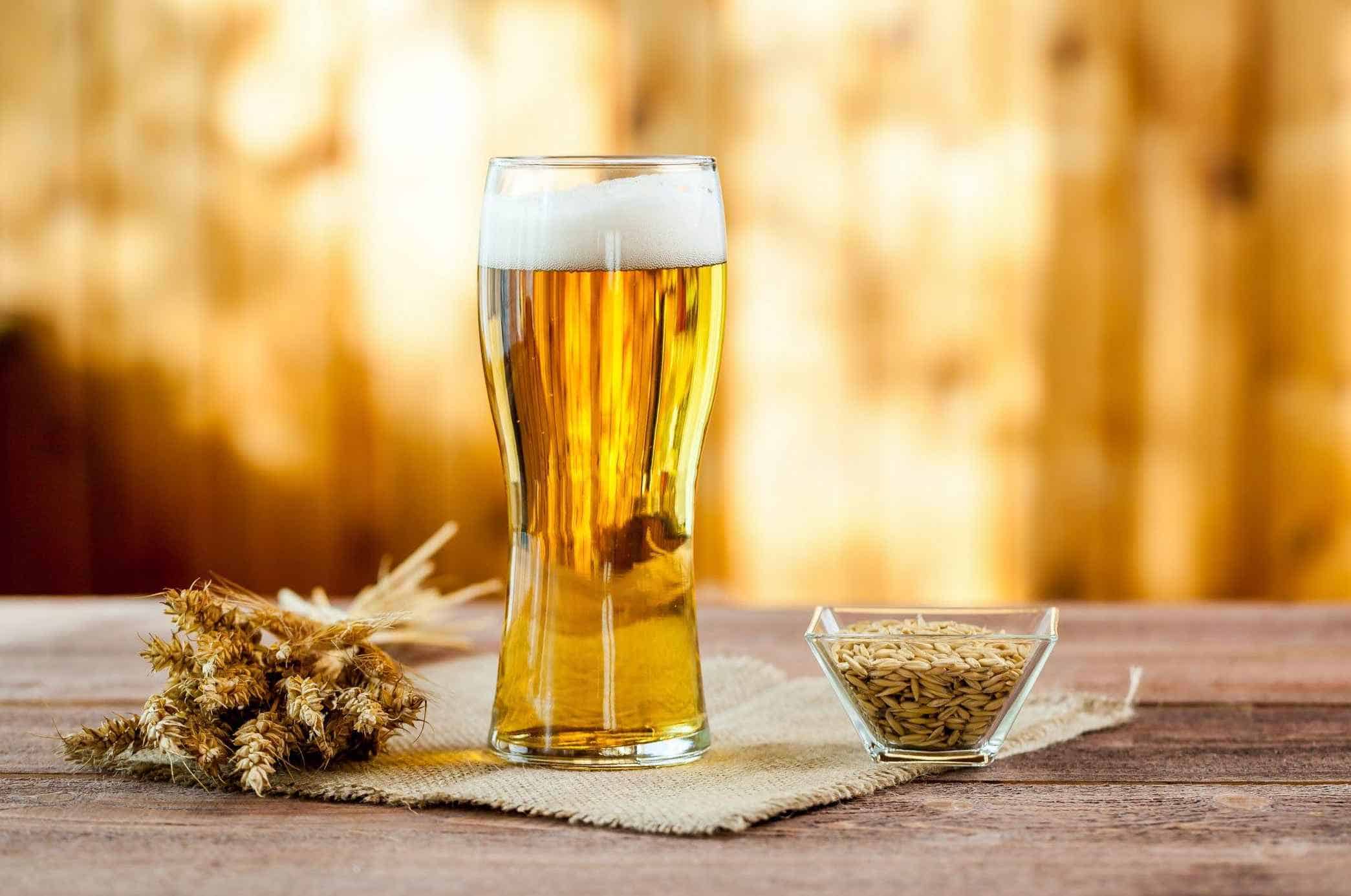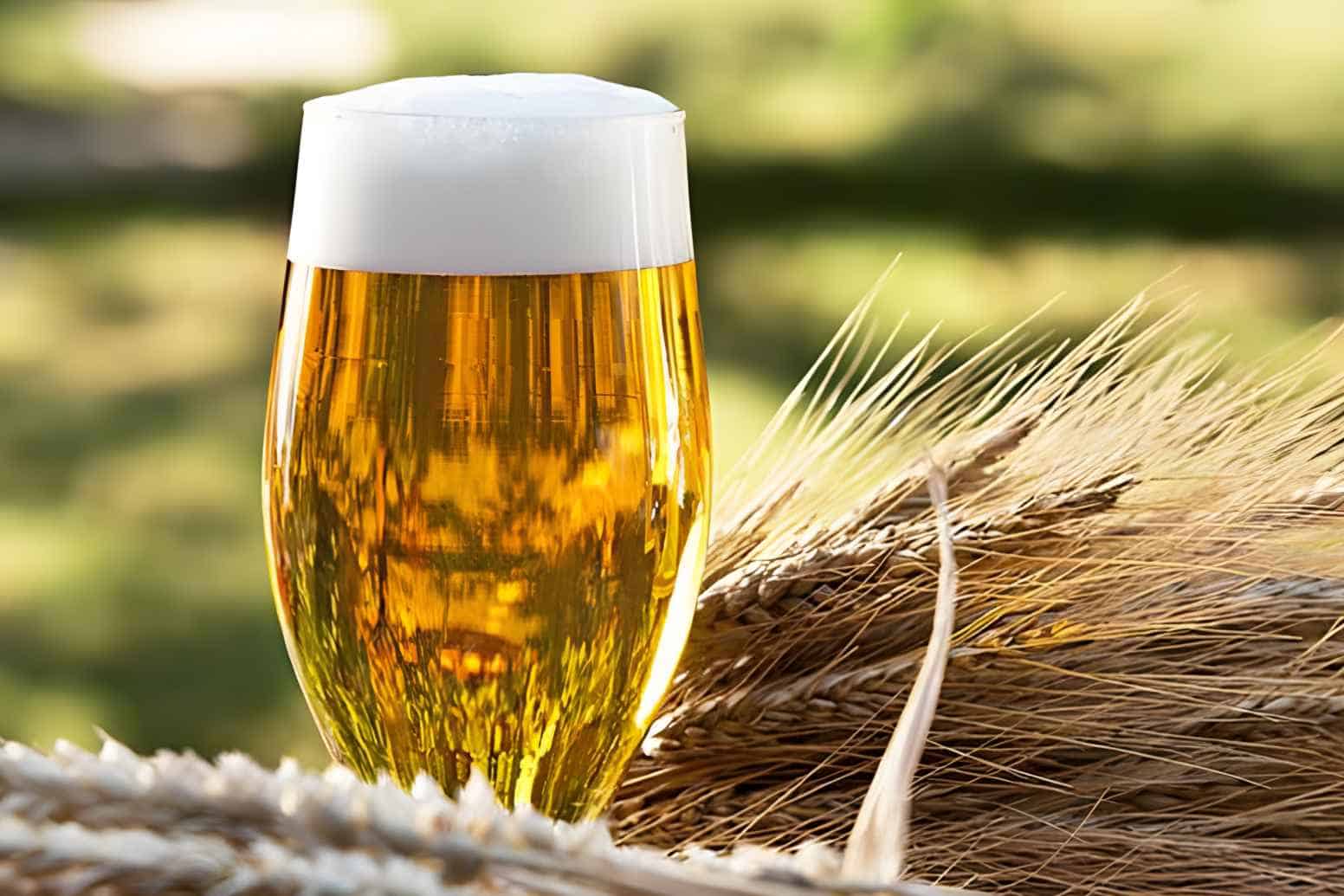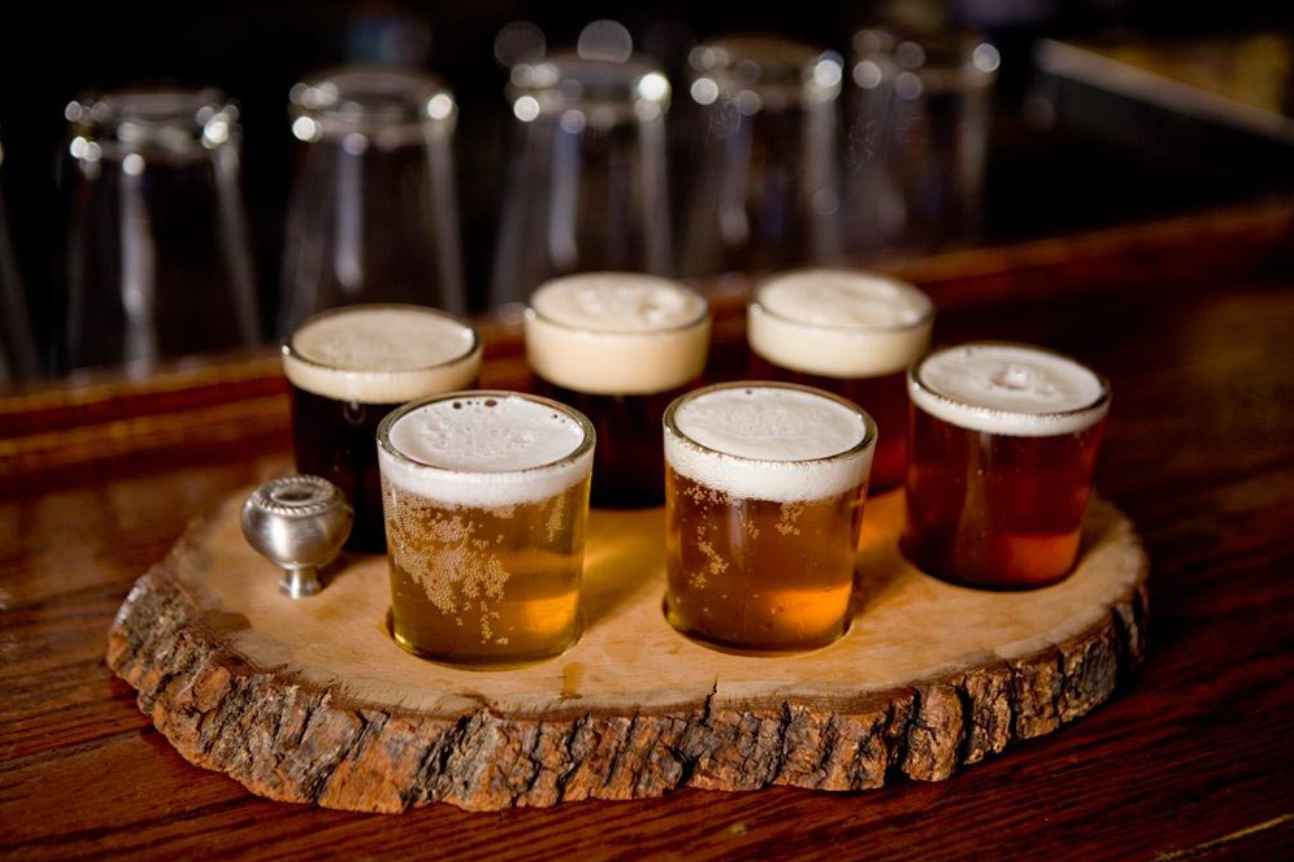In recent years, many people have become conscious of gluten. A lot of typical food and drinks have gluten. These products include pasta, bread, and beer. Do you want to know how much gluten is in beer? This article will show you the amount of beer gluten and its effects on the body.
Does Beer Have Gluten?
Yes, beer contains gluten. However, the type of grains used in the manufacturing process will dictate the amount of gluten it has.
The most common grains used for brewing, such as wheat, rye, and barley, all have gluten. The beer’s brand will also dictate how much gluten it contains.
What is gluten?
Gluten is a group of naturally-occurring proteins found in rye, barley, and wheat. Aside from being the main component of beer, these grains are also the ingredients for everyday meals. It is in pasta, cakes, pastries, and bread.
Proteins, including gliadin and glutenin, comprise the gluten structure. Found in the grain cell’s endosperm, they function as the grain’s energy storage. They are also responsible for developing the seedling during the germination stage.
Here’s a video explaining all about gluten.
How much gluten does beer have?
Barley is the main ingredient of most commercially-prepared beers. The gluten content of the beverage varies. The amount can go from 19 to 45 ppm. On the other hand, the amount of gluten in wheat beers can go as high as 40,800.
The following table summarizes the average gluten content of various beer types.
Beer Type | Gluten Content |
Wheat Beer | 25,920 ppm |
Ales | 3,120 ppm |
Stout | 361 ppm |
Lager | 63 ppm |
What beer ingredients contain gluten?
There are four primary grains used for brewing beer. Each of the following has a unique strain of protein.
- Wheat – gliadin protein.
- Oat – avenin protein
- Barley – hordein protein
- Rye – secalin protein
Gliadin, the protein in wheat, is the only one that current commercial tests can detect. The others can’t be identified by regular testing. Consumption may lead to health problems for people who can’t tolerate gluten.
Why does beer need gluten?
The grains used in beer provide the sugar needed for fermentation. These grains all contain gluten. Brewers then add yeast to metabolize the sugar and produce alcohol.
Sometimes, they include flavorings, additives, and other grains to create different flavors and aromas. These additional ingredients could also have gluten. It is important to note that the gluten content does not affect the alcohol level.
What is Gluten’s Effect on the Body?
Gluten can benefit people who don’t have celiac disease or gluten intolerance. If consumed moderately, it can offer a significant amount of protein.
It’s a low-calorie, nonmeat protein source rich in selenium, phosphorus, and iron. Aside from being a good fiber source, gluten can also be a probiotic. It promotes the growth of good bacteria for optimal gut health.
Meanwhile, a person with gluten insensitivities or celiac disease must strictly avoid gluten. Consumption of this protein can have adverse effects on their health. The following are some diseases associated with gluten.
Gluten Intolerance
In the US, 6% of the population has gluten intolerance. It’s a condition where a person feels sluggish, gassy, nauseous, or bloated after consuming gluten. It is also referred to as non-celiac gluten sensitivity.
The stomach lining of people with gluten intolerance is usually at its lower performance. It leads to inflammation because bacteria enter the liver or bloodstream. This occurrence can also lead to other symptoms, such as headache, joint pain, and skin rash.
Celiac Disease
This auto-immune disease affects around three million Americans. It’s a congenital metabolic disorder triggered by the consumption of gluten. When an individual with celiac disease eats gluten, their body produces antibodies that attack the small intestine’s lining.
The damage to the small intestine prevents the body from absorbing vital nutrients such as calcium and iron. It can lead to other diseases. They may include anemia, type 1 diabetes, and osteoporosis. Some symptoms of celiac disease include weight loss, fatigue, abdominal pain, and nausea.
Duhring’s Disease
Some individuals with celiac disease and gluten sensitivities can experience dermatitis herpetiformis. This condition, also known as Duhring’s disease, It’s a blistering and extremely itchy rash. It usually manifests on the knees, back, and elbows. This kind of rash is often mistaken for herpes.
The intestines respond to gluten ingestion by creating an IgA antibody. It then leaks into the bloodstream, causing a build-up in the blood vessels. These actions lead to the emergence of skin rash. Symptoms include fluid-filled and hive-like sores.
What is Gluten-Free Beer?
Individuals with celiac disease and gluten intolerance can still enjoy drinking beer as long as it’s gluten-free. So, what is gluten-free beer? It’s a type of beer that does not use any ingredient with gluten in it. It means there is no presence of wheat, barley, or rye.
Some brewers attest to the complexity of gluten-free beer production. Brewing, assessing, and monitoring manufacturing on an industrial scale can be challenging. There are strict guidelines in place in connection with product labels and terminologies.
What makes beer gluten-free?
According to the FDA, the gluten content of gluten-free beer should be 20 ppm or less. It is the amount deemed safe for people with gluten-related health conditions.
The acceptable ingredients for gluten-free beers include buckwheat, quinoa, millet, and sorghum. These unusual beer raw materials contribute to the unique flavors of the beverage.
What is gluten-reduced beer?
Due to their distinct flavors, some brewers still want to incorporate barley, rye, or wheat. To make them gluten-free, they need to break down gluten proteins using a particular enzyme.
It is important to note that the enzyme does not strip off the gluten. It is responsible for breaking down gluten molecules into tiny pieces. The amount of gluten is so small that the body or even laboratory tests could not detect it.
What’s the difference between gluten-free and gluten-reduced beer?
The two types of beer are all considered safe for gluten-intolerant individuals. However, the difference lies in the primary ingredients used.
Gluten-free beer utilizes millet, quinoa, buckwheat, and sorghum. On the other hand, gluten-reduced beer uses traditional brewing ingredients like barley and rye.
Another difference is in the labeling. Suppose both beers have gluten content lower than 20 ppm. The reduced gluten beer could not claim it is gluten-free. The US government mandates that they use the term “gluten-reduced or ” crafted to reduce gluten.”
The Best Beers for People Who Can’t Have Gluten
You can still enjoy a delightful cold brew even with gluten sensitivities. Fortunately, there are now gluten-free and gluten-reduced variants in the market. We’ve asked around and scoured the internet for safe and delicious options.
We’ve also included the beer’s Alcohol by Volume (ABV) percentage and its International Bitterness Units (IBU) for your guidance.
Holidaily BuckWit Belgian Witbier (gluten-free)
This gluten-free beer option is made of buckwheat, giving it an interesting flavor. The refreshing taste comes from the coriander and orange peel.
Even those without issues with gluten can enjoy the beer’s tropical vibe. Its hazy appearance comes from being unfiltered.
- ABV: 4.8%
- IBU: 16
Ghostfish Brewing Company Grapefruit IPA (gluten-free)
The creators of this award-winning beer combined Chinook, Simcoe, and Cascade hops. You can immediately taste the grapefruit, hops, and citrusy notes.
Aside from being gluten-free, it is also vegan-friendly. The distinct bitterness associated with IPAs blended well with the tart flavors of the fruits.
- ABV: 6.5%
- IBU: 45
Ground Breaker Brewing Dark Ale (gluten-free)
This brew is perfect if you’re a fan of dark ale. It’s a gluten-free option created with Cascade hops, chocolate, and roasted malts. This unfiltered beer has a dark-brown appearance. It may be bitter, but the chocolate notes make it a perfect pair with desserts.
- ABV: 5.8%
- IBU: 35
Stone Brewing Delicious IPA (Gluten-Reduced)
This brew is not recommended if you have severe gluten sensitivities. However, this is a delicious choice if you’re only after a lower gluten content. It presents a pleasant flavor that balances the bitterness. It pairs well with a wide array of food, making it a perfect mealtime companion.
- ABV: 7.7%
- IBU: 50
Omission Beer Ultimate Light Golden Ale (gluten-reduced)
This light golden ale is crafted with Willamette and Cascade hops. Its clear appearance is due to the beer’s filtration process. People who love the sweetness that golden ale brings will enjoy this gluten-reduced option. The ale’s well-balanced flavors go well with burgers and grilled meat.
- ABV: 4.6%
- IBU: 20
Ipswich Ale Brewery G Free Saison (gluten-free)
The makers of the gluten-free beer crafted it with hops, rice, and sorghum syrup. It’s a sweet, hoppy drink that offers a refreshing aftertaste. The addition of orange peel makes it taste like a tropical beach vacation.
- ABV: 4.5%
- IBU: 30
Check out this video for reviews of other gluten-free beers.
Wrapping Up
Knowing how much gluten is in beer allows individuals with gluten insensitivities to enjoy their drinks safely. Wheat beer has the most gluten, so it’s best to veer away from them. Fortunately, several gluten-free and gluten-reduced options are available in the market today.

As a homebrewer, Michael would get frustrated about the lack of brewing information on the internet. After hundreds of gallons of spoilt batches, Micheal had enough. And he founded Unknown Brewing as a resource for homebrewers.






Thanks, I probably must drink gf beer from recent symptoms. Good information !
Great article! I have become more and more sensitive and drank one beer that used to be okay. No longer. I’ll definitely do more research on gluten numbers and make myself a list of options. This reaction was educational.
Thank you for your comment! It’s important to listen to your body and adjust accordingly. In your research, consider gluten-free or gluten-reduced beers and consult a medical professional for guidance. I hope this helps you find suitable options while keeping your health in mind.